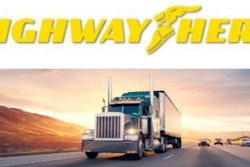
A report from the Connecticut Department of Transportation, released in November, said a statewide tolling system could bring in $1 billion in yearly revenue. CTDOT says as much as 40 percent of that revenue could come from out-of-state drivers. John Titsworth, the Connecticut feeder planner for UPS overseeing over 200 drivers, said he has his doubts about that. UPS employs almost 5,000 people in Connecticut, according to Titsworth.
“They come from all different parts of the state. They all have to drive to work each and every day, some shorter distances, some longer distances. One of the things we keep hearing is out of state drivers are going to be paying for the majority of tolls,” Titsworth said. “Well, 100 percent of Connecticut drivers who use our roads are going to be paying tolls. That means every person who drives on a highway to go to work is going to be paying to go to work. To me, that doesn’t sound like the majority out of state will be paying. It sounds like everybody in Connecticut will be paying, who uses highways.”
Sen. Alexandra Bergstein (D – Greenwich) proposed a broad tolls bill in January that would require the Commissioner of Transportation to institute electronic tolls on major highways, establish toll amounts on a per-mile basis comparable to those seen in neighboring states, and ensure the money brought in from tolling is deposited to the Special Transportation Fund, with some of those funds being allocated to a state infrastructure bank. The bill has been referred to the state transportation committee.
“I’ve introduced a very broad bill just to get the discussion going,” said Sen. Bergstein, as reported by WTNH.
Andy Anastasio Jr., of A. Anastasio & Sons Trucking Company, LLC, said his company has been in the trucking business for 42 years. They run 25 of their own trucks and have about 10 small business owners who support them with additional trucks. His company transports various building materials and farm feed, fertilizer and waste products. He said tolls could cost him anywhere from $250,000 to $350,000.
“It’s very frustrating because our livelihood is made on the roads and we want to pay our fair share, and we feel we do,” with different taxes, Anastasio said. “When it just keeps coming back to well, we’ll put it on the backs of the truckers, it really is frustrating because we pay our fair share, and we want to continue. We need good roads. We need good infrastructure. At some point, it has to be the money we’ve been putting in has to be focused on road infrastructure for trucks and cars.”
Katie Childs, with Tuxis Ohr’s Fuel and J. Vitali Transportation, said they have approximately 40 trucks in their fleet and haul mostly petroleum products. She estimates that, if tolls are implemented, driving approximately two million miles per year could cost their business between $400,000 to $500,000 per year.
“There’s no way you can absorb $500,000 in new expenses into any business. A good portion of our business would be delivering gasoline to gas stations, and the tolls would be a direct pass on to the gas stations which would then increase the price at the pump,” Childs said.
See what other Connecticut trucking representatives had to say:











